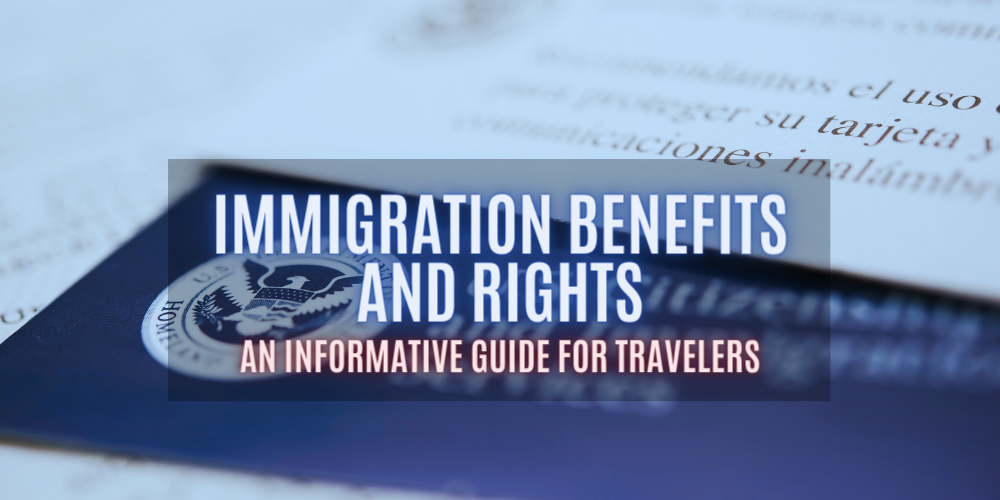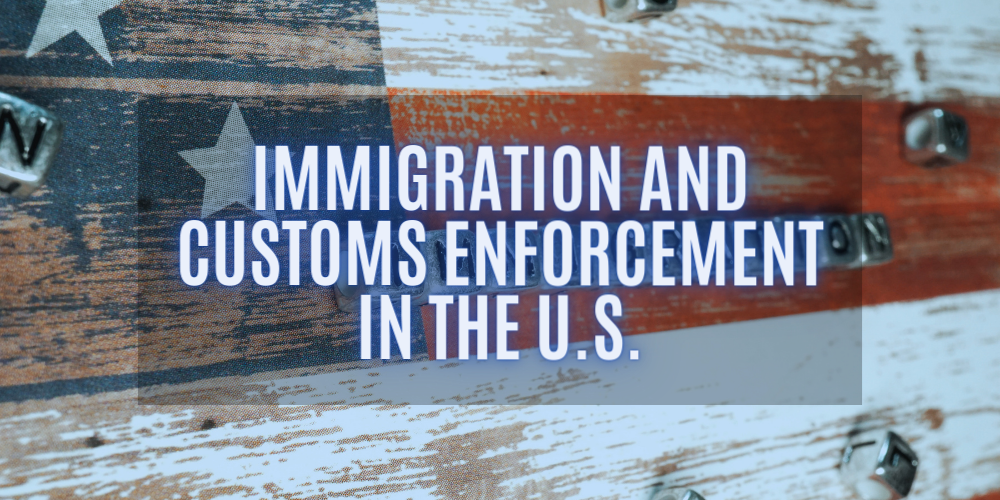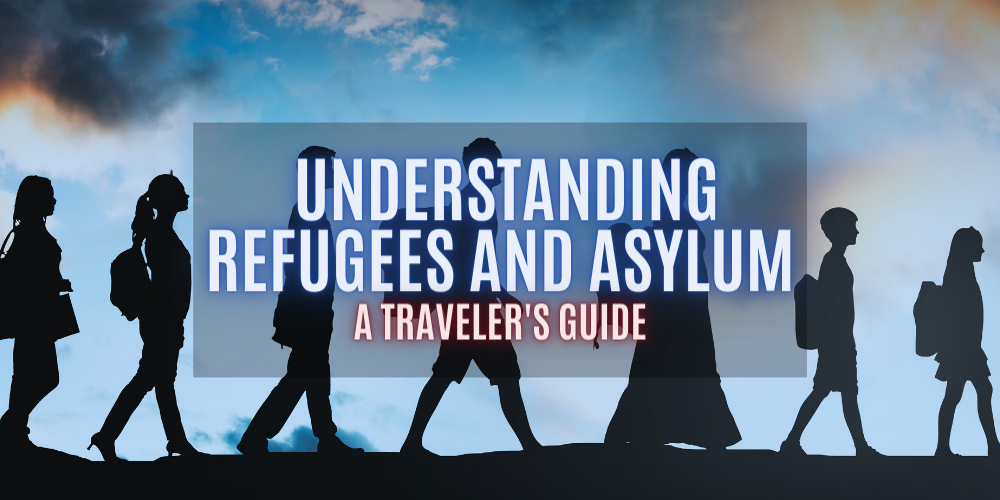--------- Decoding the USCIS Fee Schedule Changes of 2024: What You Need to Know
Mar 25, 2024

With the new year, the USCIS has rolled out significant changes to its fee schedule, impacting various immigration applications. As you plan your travels or immigration to the U.S., understanding these changes is key. Let's dive into what 2024 has in store for USCIS fees.
Understanding the New USCIS Fee Schedule
The 2024 USCIS Fee Schedule brings a series of changes that impact how much applicants will pay for various immigration processes. It's important to understand these updates as they could affect your application budget.
The fee schedule is essentially a price list for all the services offered by USCIS. This includes application processing for things like visa petitions, permanent residency applications, and naturalization. For 2024, USCIS has adjusted these fees to reflect the current operational costs and budgetary needs of the agency.
One of the notable changes is in the fees for key forms such as Form I-485 (Application to Register Permanent Residence or Adjust Status), where the fee structure has been revised. This form is particularly important for individuals seeking to adjust their status to that of a permanent resident.
The rationale behind these changes, as explained by USCIS, is to better align the fees with the costs of processing applications, ensuring the sustainability and efficiency of the immigration system.
Impact of Fee Unbundling on Applicants
Fee unbundling is a significant part of the 2024 changes. Previously, certain services were bundled together under a single fee. For example, applicants filing for adjustment of status (Form I-485) did not have to pay additional fees for associated applications like employment authorization (Form I-765) or travel documentation (Form I-131).
With the new unbundling policy, applicants will now have to pay separate fees for each of these services. This means if you're applying for an adjustment of status and also need work authorization, you will have to pay for each application individually.
The impact of this change is twofold: firstly, it increases the overall cost for applicants who need multiple services. Secondly, it allows for a more a la carte approach, potentially reducing costs for those who need only one specific service.
Expanded Humanitarian Exemptions
The 2024 fee schedule brings some relief in the form of expanded humanitarian exemptions. These exemptions are particularly important for vulnerable groups such as refugees, asylum seekers, and victims of human trafficking or domestic violence.
Under the new rules, certain fees will be waived for applicants who fall under these humanitarian categories. This means that if you're applying for immigration benefits under a humanitarian program, you may be exempt from paying the associated application fees.
This change reflects USCIS's commitment to supporting individuals in need of protection and aligns with the broader humanitarian principles of the U.S. immigration system.
Fee Waivers and Eligibility Criteria
Fee waivers are a crucial aspect of ensuring that the immigration system is accessible to all, regardless of financial capacity. The 2024 changes include adjustments to the criteria for fee waivers.
To be eligible for a fee waiver, applicants generally need to demonstrate an inability to pay the fee. This can be done by showing that they receive means-tested benefits, have a household income at or below 150% of the Federal Poverty Guidelines, or are undergoing financial hardship.
The process involves filling out and submitting Form I-912 (Request for Fee Waiver), along with supporting documents that prove the applicant’s financial situation. This can include tax returns, pay stubs, or proof of benefits received.
Understanding and navigating these criteria is essential, especially for applicants who may find it challenging to meet the new fee requirements. Fee waivers play a vital role in ensuring fair access to immigration services, particularly for low-income individuals and families.
Changes to Specific Forms and Applications
With the 2024 updates to the USCIS Fee Schedule, several forms and applications have undergone significant changes. Here's a closer look:
- Form I-485 (Application to Register Permanent Residence or Adjust Status): This form, crucial for those seeking to become permanent residents, has seen a revision in its fee. The change affects individuals adjusting from a non-immigrant to a permanent resident status.
- Form I-765 (Application for Employment Authorization): Previously included in the bundled fee with Form I-485, the I-765 now requires a separate fee. This form is used by individuals who need to work in the U.S. while their immigration status is being processed.
- Form I-131 (Application for Travel Document): Similar to the I-765, the I-131 form, used for applying for a travel document, like a re-entry permit or advance parole, also requires a separate fee following the unbundling policy.
- DACA Applications: The Deferred Action for Childhood Arrivals program fees remain unchanged, providing some stability for DACA recipients amidst the fee schedule overhaul.
How These Changes Affect Different Applicant Categories
The changes in the USCIS Fee Schedule have varying impacts across different applicant categories:
Family-Based Applicants: Those applying for family-based visas might feel the pinch due to increased fees and the need for multiple applications, such as adjustment of status and employment authorization.
Employment-Based Applicants: The unbundling of fees might lead to higher overall costs for employment-based applicants, especially for those also seeking travel documents or adjustment of status.
Students and Exchange Visitors: While the primary visa application fees might not be significantly affected, those seeking work authorization or adjustment of status post-study will need to budget for the increased costs.
Asylum Seekers and Refugees: This group may find some relief thanks to expanded humanitarian exemptions, potentially exempting them from certain fees.
Humanitarian-Based Applicants: Applicants for forms like U visas (for victims of crimes) and T visas (for victims of human trafficking) will benefit from the humanitarian exemptions.
Navigating the Changes – Tips and Advice
Adapting to these changes requires a proactive approach. Here are some tips:
- Stay Informed: Regularly check the USCIS website for the latest information on fees and requirements.
- Budget Accordingly: Plan your finances considering the new fee structure, especially if applying for multiple forms.
- Explore Fee Waivers: If you're eligible for a fee waiver, gather the necessary documentation and apply to mitigate costs.
- Seek Professional Advice: Consult with immigration professionals for personalized advice, especially in complex cases.
- Document Preparation: Ensure all your documents are accurately prepared to avoid delays or additional costs due to resubmission.
While these changes seem daunting, proper planning and understanding can make the process smoother. If you need assistance with your visa application, GovAssist is a valuable resource. They provide expert guidance and support, helping you navigate the complexities of immigration applications. With GovAssist, you can confidently tackle these new USCIS fee changes and make your travel or immigration journey a success.
Remember, staying informed and prepared is key to navigating these changes successfully. Safe travels and good luck with your immigration journey!
Recent Articles

Immigration Benefits and Rights: An Informative Guide for Travelers
Understanding immigration benefits and rights is essential for anyone considering travel or relocati

SEVIS Simplified: A Complete Guide for International Students and Exchange Visitors
If you're planning to study or participate in an exchange program in the United States, understandin

Understanding ICE: Navigating the Role of Immigration and Customs Enforcement in the U.S.
Immigration and Customs Enforcement (ICE) plays a pivotal role in the U.S. immigration system. As tr

Investing in the American Dream: A Comprehensive Guide to the EB-5 Immigrant Investor Program
The EB-5 Immigrant Investor Program offers a unique pathway to U.S. residency for foreign investors

Finding Safety: A Traveler's Guide to Understanding Refugees and Asylum
Refugees and asylum seekers are central figures in the global discussion on immigration and human ri

Navigating Optional Practical Training: A Guide for International Students
Embarking on an educational journey to the U.S. opens up a world of opportunities, not just for acad
Read More

Immigration Benefits and Rights: An Informative Guide for Travelers

SEVIS Simplified: A Complete Guide for International Students and Exchange Visitors

Understanding ICE: Navigating the Role of Immigration and Customs Enforcement in the U.S.

Investing in the American Dream: A Comprehensive Guide to the EB-5 Immigrant Investor Program

Finding Safety: A Traveler's Guide to Understanding Refugees and Asylum

Navigating Optional Practical Training: A Guide for International Students

Welcome to the GovAssist blog. We know that navigating the maze of visa applications and online forms can be as tricky as choosing the perfect travel playlist (which is all we want you worrying about anyway).
Throughout our years of experience, though, we’ve uncovered a mountain of knowledge which, via this blog, we’re sharing with you! Whether you're diving into the world of travel visas, wondering about the ESTA online hustle, or just trying to figure out the DS160 form, think of us as your online concierge, here to make the process easy and most of all, clear.
At this point in our global context, who has time for endless paperwork and confusing legal jargon? No one. That's why we're all about spilling the tea on online visa hacks, easier-to-work-with DS160 forms, and giving you tips on everything from tourist visas to immigration, to that last-minute ESTA online adventure.
So, just plug in a word you’re curious about on the search bar, and boom. We've got the tips, tricks, and insider info to help you (and anyone else you may be traveling with) get to your travel destination with the confidence of a seasoned traveler.
Now go explore!
